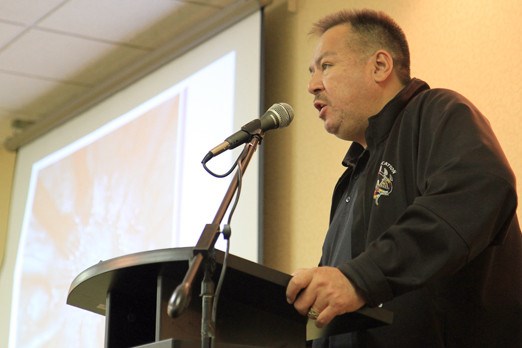While the number of babies born with fetal alcohol spectrum disorder appears to be decreasing, one FASD worker observes that more children are being born addicted to drugs.
“We see a lot of babies having withdrawals from whatever their mother was taking,” said Sandy Lake First nation FASD worker Irene Goodwin, adding many babies are born addicted to oxycodone.
Children born addicted to drugs also have to stay in the hospital longer to be weaned off the substance.
One challenge is getting mothers to acknowledge that their actions could harm their child.
“A lot of these moms will one day bring their baby home and one day find out there’s something wrong with their baby, they won’t admit they were drinking so it’s pretty hard,” Goodwin said.
Goodwin was one of many attendees of a three-day conference called Honouring Our Gifts, which kicked off Tuesday at the Nor’Wester Hotel. The conference focuses on improving programs for FASD and other health issues.
Goodwin said one issue in the remote First Nations is getting a child diagnosed. She said many of the diagnostic clinics have been closed.
Nishnawbe Aski Nation deputy grand chief Terry Waboose said in the last five years, the province has been cutting services and it’s leaving Ontario behind in its ability to treat children with FASD.
“The other provinces have more targeted strategic programs regarding this issue of FASD,” he said.
This is a critical problem because most northern communities don’t have access to the proper care.
“We’re challenged by our remoteness, by our isolation and the high cost to do business in the territory,” he said, noting any plan that is developed has to take into account NAN issues and circumstances.
The deputy grand chief said NAN officials are willing to sit down with the provincial government to design a program that will fit the organization’s needs.
